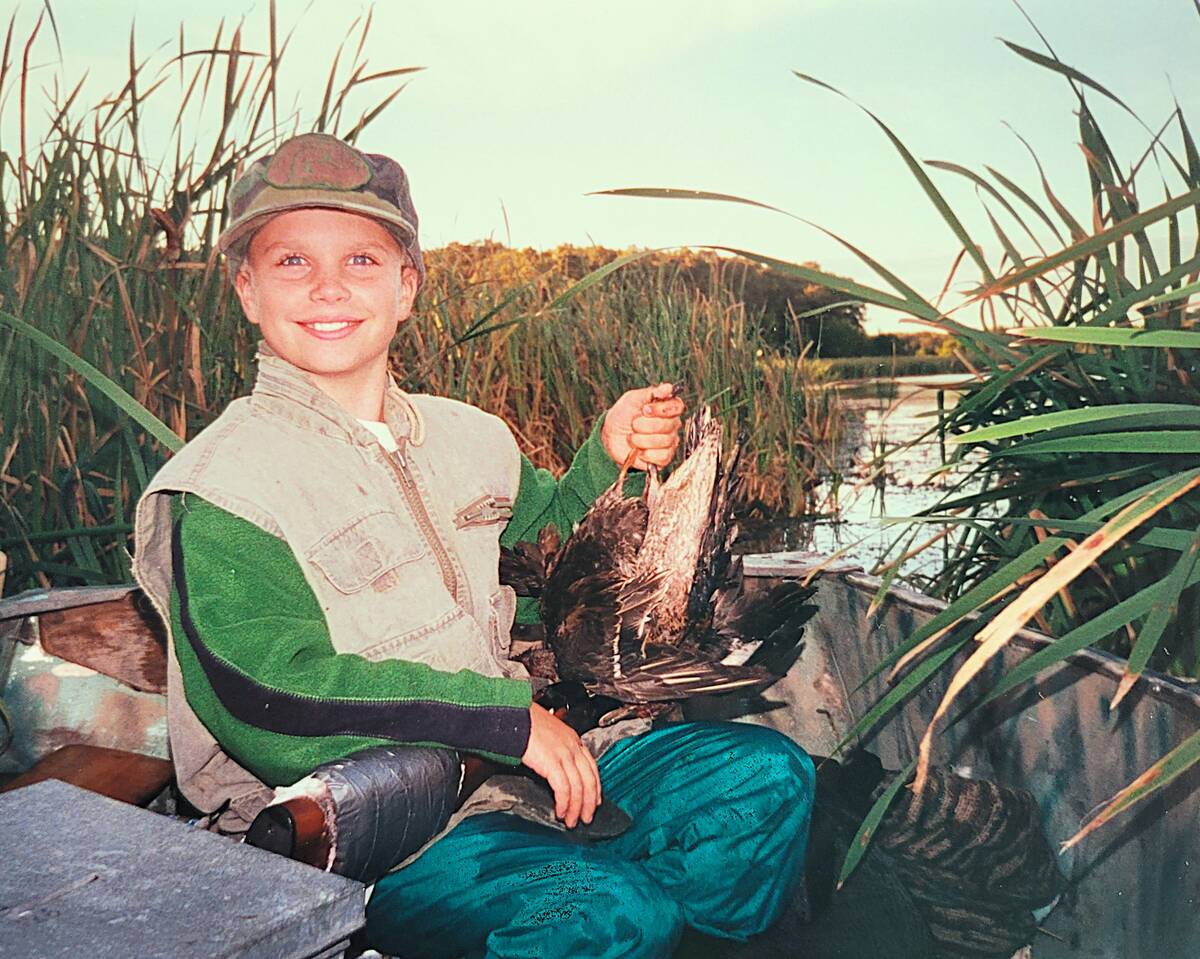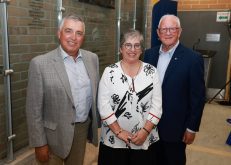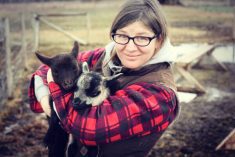It started with a desire to feed her sick mom.
Around 2015, as Hailey Jeffries settled into farm life with husband Cale, her mother was diagnosed with cancer.
As she suffered through rounds of chemotherapy, Hailey’s mom didn’t have much of an appetite. She asked for bagels, muffins and other baked goods.
While Hailey wanted to feed her mother what she actually had appetite for, she worried about the foods’ health value.
“There’s just not a lot of nutrition in these products,” she said.
Read Also

Should you teach your kids to hunt?
Teaching young people to hunt is an important rural tradition in Western Canada and teaches responsibility and love of nature, columnist Tim Sopuck writes.
Hailey had long been interested in health, so she began reading about alternative flours and proteins — ways to add substance to her mom’s meals.
Cale, who had joined his family seed farm, Jeffries Seeds, was growing fava. He mused to Hailey that they’d sell a lot more fava seed if farmers had a consistent market for the crop.
Curiosity led them to explore the pulse products on the market. Plant protein and plant-based products were on the rise, leading Hailey and Cale to ask, “why not fava?”
“Next thing we know, we’re buying a dehuller and starting to do it ourselves,” said Hailey.
The business student and the farmer
The Jeffries’ farm began on 320 acres in 1896. Sid and Mary Jeffries raised horses, cattle, pigs, chickens and goats. The Prairie Fava website displays a black and white photo of the original farmhouse — a one-storey building conjoined to a two-storey addition by a lean-to.
Over the next century, Sid and Mary’s descendants slowly expanded the farm. In 1994, Ron Jeffries — now the fourth generation on the farm — purchased seed-cleaning equipment and founded Jeffries Seeds.
Cale, Ron’s son, and Hailey met in high school.
Hailey grew up in Brandon where her parents owned an optometry business.
“I guess I always had an entrepreneurial spirit as I knew I maybe wanted to own my own business,” she said.
Hailey studied business at George Brown College in Toronto with ambitions to become an event planner. After graduating, she got a job in medical device sales.
Around then, Cale moved to study at the University of Guelph and play hockey. After he graduated, he and Hailey married and moved back to Manitoba where Cale joined the family farm.
When her mom became ill, Hailey helped care for her and worked part time at the family optometry business.
As Hailey and Cale researched fava beans, she writes on the website, she decided to leverage her passion for sales and health and start Prairie Fava.
Milled fava, said Hailey, is the most neutral tasting of the pulses (flavour can be an issue with these alternative flours and proteins). As a legume, which can fix nitrogen back into the soil, it’s a useful and potentially sustainable, addition to a crop rotation.
Prairie Fava dehulls fava beans and sells them whole, as splits, or milled into flours.
Unfortunately, Hailey’s mother lost her battle to cancer before the company could launch.
Hitting their stride
“We’re three years in now,” Hailey told the Co-operator. “We’re growing but we’re still small in terms of the scale of how many farmers we actually buy from.”
But since its inception, Hailey and Cale have caught a couple of big opportunities.
In 2016, District Ventures, a business acceleration program based in Calgary, picked Prairie Fava as one of six food and health startups (out of 70 applicants to participate in a mentorship program led by CEO Arlene Dickinson. Some may know Dickinson from the TV show “Dragons’ Den.”
This would lead to District Ventures investing in Prairie Fava. However, when asked what her biggest takeaway from the program was, Hailey said, “Honestly, the connections, the support system with other entrepreneurs.”
While there are other entrepreneurs around Glenboro, it can be tough to connect with people who are at similar stages and facing similar challenges and opportunities, said Hailey.
“Still to this day, those connections are just so valuable,” she said.
In 2020, Prairie Fava joined with pulse giant Roquette to explore new uses for fava proteins.
The $19.2-million project, part funded by Protein Industries Canada, will look at blending pea and fava proteins to create an optimal amino acid profile, said Roquette at the time of the announcement.
Jeffries was tight lipped on the details, but said funding from Protein Industries Canada would allow them to improve their equipment for the most effective and efficient processing of fava.
“It’s wonderful to have obviously such a global leader in plant-based protein be involved in a project with such a small company, and to be a resource and a support to Prairie Fava,” Hailey said.
“In a way (it) validates a lot of work that Prairie Fava is doing,” she added. “We’re very excited about the project.”
Prairie Fava, which sells strictly business to business, continues to explore how fava can be best used in the food industry. They’re also looking at their own line of consumer products for down the road.
“There’s still lots of room for growth,” Hailey said.
One of those areas is agronomics, said Hailey. Fava has been grown fairly sporadically in Manitoba, and thus not a lot of research has gone into improving plant varieties or fava farming practices.
Prairie Fava will soon launch a new fava variety, licensed from DL Seeds.
“Over the next five years, hopefully we’ll see improvements in the fava bean varieties and just improvements in the overall fava bean research,” Hailey said.


















